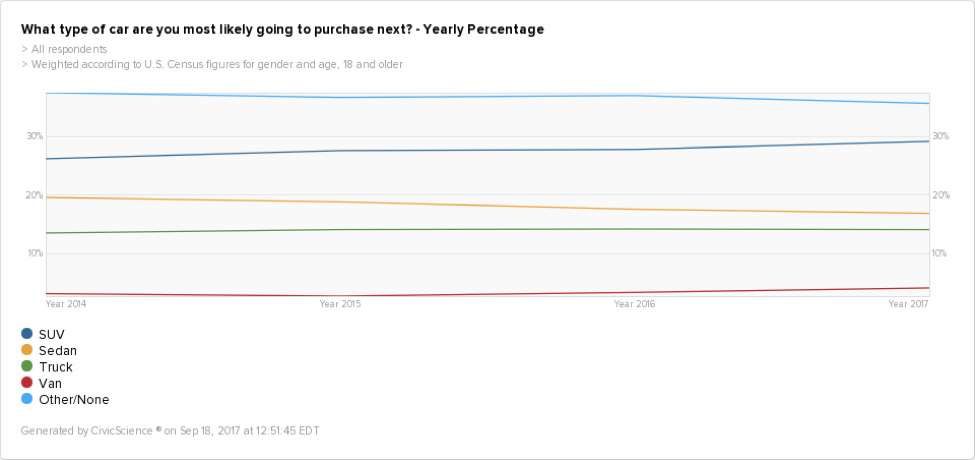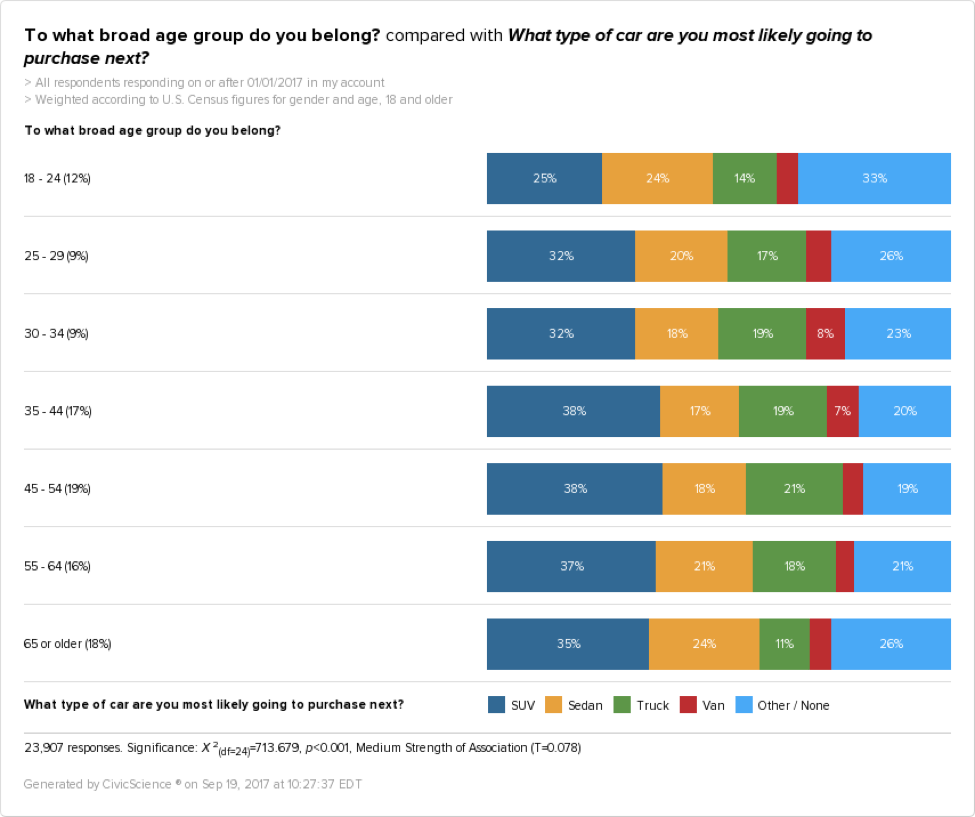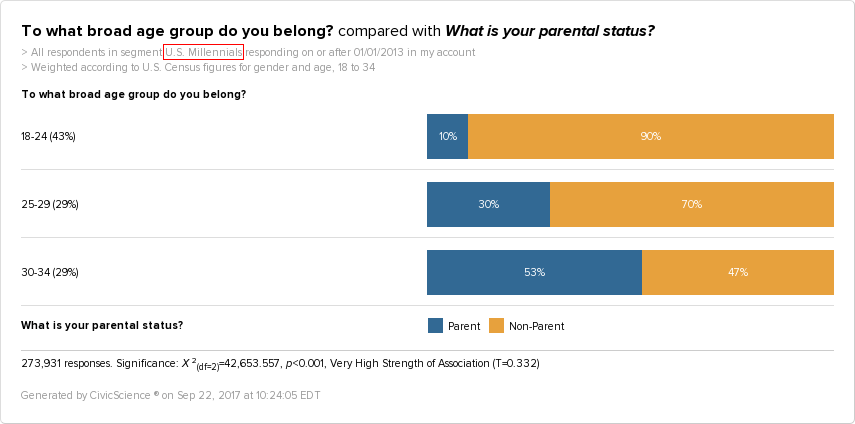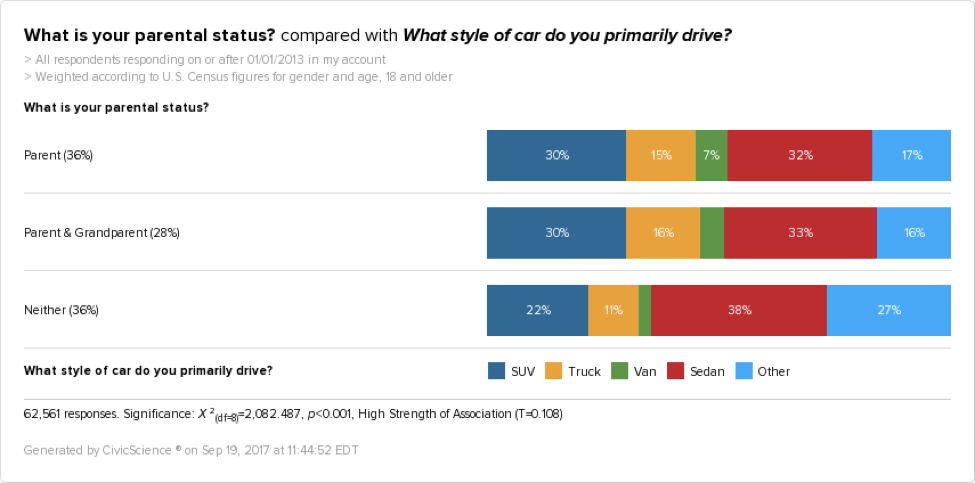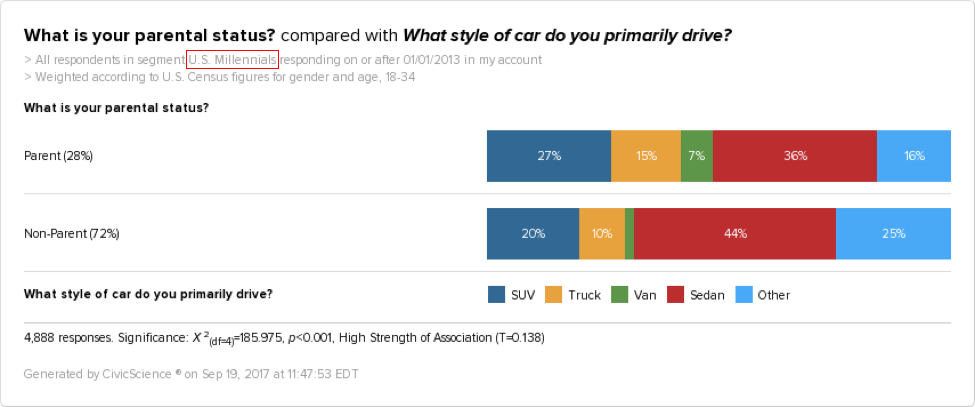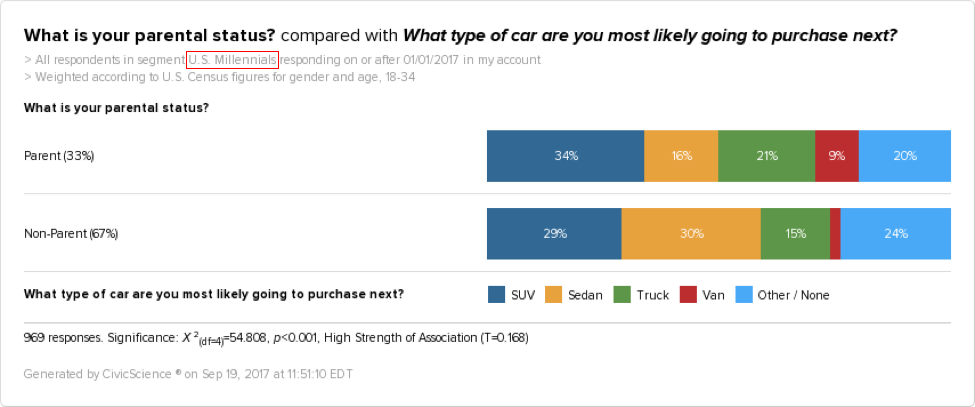The Gist: Our data confirm a trend, recently reported by NPR, that Millennials are purchasing more SUVs. Parenthood may be a big reason for this shift, as many Millennial parents currently drive a sedan, but are planning to buy an SUV for their next purchase.
NPR ran an article last week indicating that Millennials’ buying patterns are shifting as they’re becoming more established in the workforce and starting their own families.
One of the patterns they pointed to is a statement from Ford saying that Millennials are purchasing more SUVs, probably to accommodate their growing families.
I looked into our data and found a similar emerging trend.
SUV BUYING TRENDS
It’s first worth mentioning that it’s not just Millennials who are buying more SUVs.
Popularity for this type of vehicle has actually been on a slight but steady ascent since 2013, while the sedan’s popularity has steadily declined. Interestingly, the van is making a bit of a comeback as well, which we’ll also look into.
To break down this information, I looked at the two factors the NPR article attributed to the increase in SUV sales — age and parental status. I looked at income, as well, but found no correlation (just in case you were wondering).
SUV BUYERS BY AGE OVER THE PAST YEAR
I decided not to break down age by generation, or to look at Millennials as a whole, because of a stark difference in the buying habits between younger and older Millennials.
Millennials between the age of 18 and 24, who are mostly still students, or just setting out into the workforce, are much less likely than their older Millennial counterparts to say they plan to purchase an SUV as their next vehicle. Seven percentage points less, as a matter of fact.
The likelihood of purchasing an SUV appears to move along a curve with age, peaking with 35-44 year-olds. The sedan’s popularity, on the other hand, curves in the opposite direction with popularity peaking with the oldest and youngest age groups.
What’s most fascinating about this graph is the fact that the van has a spot on the map with the oldest group of Millennials (30-34 year-olds). I’d presume this is because Millennials famously delayed having kids into their early 30’s, and now may favor a van to tote their little ones to soccer practice.
PARENTS AND SUVS
Next, to examine NPR’s guesses that parenthood could play a role in vehicle buying trends, I took a look at the percentage of Millennials who answer that they’re parents.
Over ¼ of 25-29 year-olds and over ½ of 30-34 year-olds say that they’re parents. Those are some massive leaps, showing, again, that Millennials are not all at the same life stage, despite being in the same generation.
As for what parents drive, parents are 2% less likely to currently drive an SUV than a sedan. Non-parents are also much less likely to drive an SUV than a sedan.
If we simplify the data to just Millennial parents, we find that they are 30% less likely to currently drive an SUV than a sedan and Millennial non-parents are over 100% more likely to currently drive a sedan.
However, if we look at these same demographics’ next purchase (when only accounting for respondents since the beginning of 2017), we can see that Millennial parents are much more likely to say they plan on purchasing an SUV over a sedan. On the flip side, non-parent Millennials are more likely to say they’ll purchase a sedan over an SUV.
REACHING SUV BUYERS
The takeaway here is that our little Millennials are growing up. As this generation reaches their mid-30’s, they’re trading in their limited responsibilities for a family and a family-sized vehicle.
Not all Millennials, however.
Your 20’s and 30’s are full of big milestones than span the length of the Millennial generation. Some Millennials are having kids while others are studying for finals.
To sell a particular vehicle, it might be wise for advertisers to continue focusing on parental status rather than or in addition to other demographics such as age.
